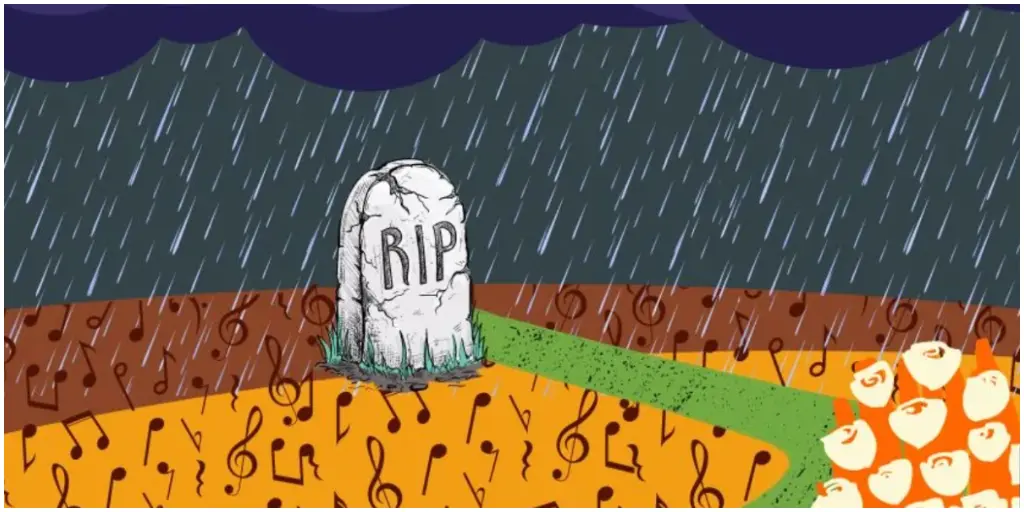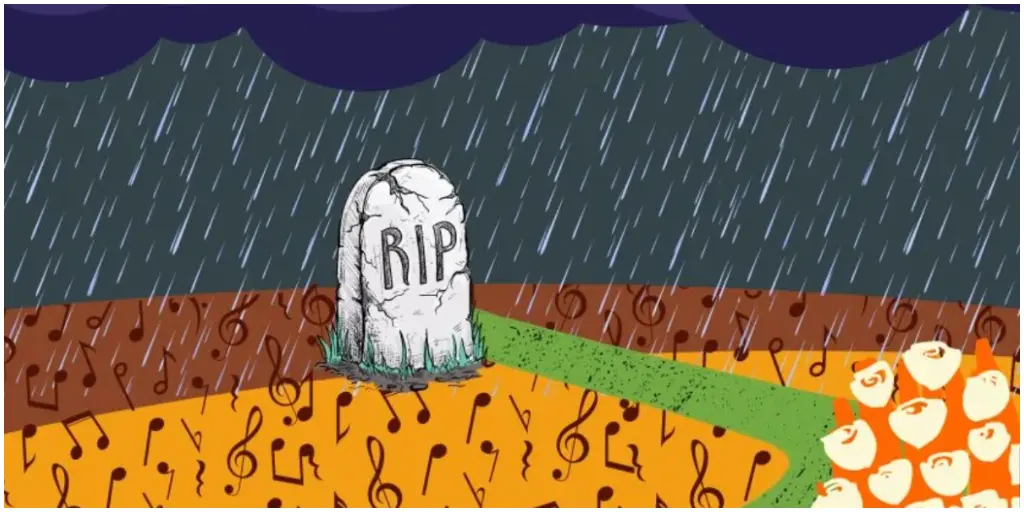When I lost my mother four years ago, I couldn’t cry anymore. Before she passed away, she was bedridden for a year. She hoped it wouldn’t happen, but she knew the end was near. During her time at Lagos University Teaching Hospital (LUTH), she lost her speech and music was the only way we could connect.

We had a routine. I stuck the pod in her ear, selected her song, and watched her try humming a familiar gospel melody or a trendy Afrobeat song. It was both beautiful and sad.
She passed away a month after we started this routine and I found myself trying to relive the memories we shared in her final moments. Music was the only thing that helped, but not just any music. Gospel music was too solemn, and foreign music felt foreign to my emotions.
And Afrobeats was loud, until I finally found these particular songs that gave me the familiar feeling I wanted.
Dagrin’s “If I Die”
Dagrin’s “If I Die” definitely ranks as one of the most controversial Nigerian songs, and the reason for that is not far-fetched. Would anyone record their death weeks before they die? Lyrics like “If I die, if I die, don’t cry for me.” E jen simi, e joor kejen mi” For someone who was ready to accept death when her mother departed, nothing could have resonated more.
Niyora’s “Olumolanti”
When Niyora released this song in 2020, I couldn’t help but use it in my mother’s photo and video compilation even though it wasn’t the anniversary of her death. The profound lyrics found a melodious way to express things I never thought I’d want to say.
“Pray, pray, I won’t stop thinking about you. I’m sure you’ll be waiting for me. You’re still in my heart.” The very thought of forgetting my mother because of death but? No, death shouldn’t have that much power over anyone. And Niyora expresses this beautifully in “Olumolanti.”
“Olorun Mi” by Tiwa Savage
When Tiwa Savage recorded her tribute to fallen stars and heroes in 2013, death was foreign to me. I knew it was a sad song, but I didn’t know how sad it was. Six years later, her lyrics, “Olorun mi gba adura mi. When everything we love is taken away. I’ll keep going, but it won’t be long. I pray that I’ll be strong. “Olorun mi gba adura mi. oh” became my mantra, and it became a little easier to move forward.
“Ashes” by MI Abaga
While I was grieving, the last thing I wanted to hear was rap, but I discovered MI’s tribute to ‘Alu 4’, the Port Harcourt students who were brutally murdered by a mob in their local community in 2012. Rappers used music as a tool. He expresses his hurt and speaks out against social evils. “The reason why I’m gone.” The words “Let me tell you, let me know, and make me a song” resonated in my heart.
“Legends Can Never Die” (written by David)
“LCND” was a tribute to the singer’s late son Ifeanyi and other friends he lost over the years. He opens the track with the introspective lyric, “Let me tell you, life isn’t fair,” and goes on to describe his loved ones as legends, shooting stars in the sky. This song may have been a little over the top during the early stages of grief, but it was a favorite because it came out when she was fully accepting her mother’s death. This Afrobeat song is perfect for honoring the lives of those who have passed away.
Teni’s “Dad’s Song”
One of the hardest things about losing a parent at a young age is accepting the fact that they will never see you grow up. This was how Teni felt when she recorded “Dad’s Song” in 2021. She begins the track by recounting her notable career accomplishments during her father’s absence and how her father would have loved to have witnessed all of it. Her singer’s pain was all too familiar. Like her, my mother left her home too soon and missed important milestones that were only possible because of how much she sacrificed.
There are lines like, “Eruobami, you are by my side.” This song, which says, “Eru no bami, you’re always next to me,” gives us a sense of security that even if we’re no longer around, you’re always watching over us.


